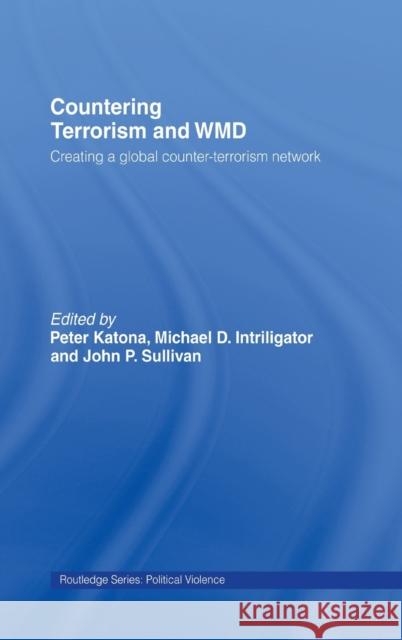Countering Terrorism and WMD : Creating a Global Counter-Terrorism Network » książka
Countering Terrorism and WMD : Creating a Global Counter-Terrorism Network
ISBN-13: 9780415384988 / Angielski / Twarda / 2006 / 300 str.
Countering Terrorism and WMD : Creating a Global Counter-Terrorism Network
ISBN-13: 9780415384988 / Angielski / Twarda / 2006 / 300 str.
(netto: 880,84 VAT: 5%)
Najniższa cena z 30 dni: 856,36
ok. 16-18 dni roboczych.
Darmowa dostawa!
The purpose of this book is to explain the need for a global network approach to counter-terrorism, and to elaborate how it could be formed. As the authors see it, the world is changing today far more rapidly than ever before, and current public and private institutions cannot keep up with this new paradigm. While terrorism has a long history, it has become the focus of worldwide attention as a result of the September 11, 2001 strikes on the U.S. and later strikes by al Qaeda and other terrorist organizations on a worldwide basis ranging from Indonesia to Tunisia to Spain. Subsequently, there have been various attempts to counter this latest wave of terrorism, including the U.S. strikes against Afghanistan and Iraq, President George W. Bush's declaration of a "War against Terrorism," the creation of the U.S. Department of Homeland Security, the 9/11 Commission and the very recent arrests of Muhammad Naeem Noor Khan, Ahmed Khalfan Ghailani and Issa al-Hindi. Despite these events and reactions, we believe that there is a need to consolidate and expand efforts against terrorism through the creation of an formal and an informal global counterterrorism network.
This book contains essays from experts in various disciplines, including clinical medicine and public health; economics, political science, and public policy; and law enforcement, which are our own fields; with those of the military, politics, intelligence and the media to try to give some coherence and direction to this process of forming a global counter-terrorism network. The book identifies the nature of a global counterterrorism network, shows how such a global network could be created, and provides some guidelines forgauging its future effectiveness.
This book will be essential reading for all serious students of terrorism and political violence, security studies and for defense and policy analysts.











